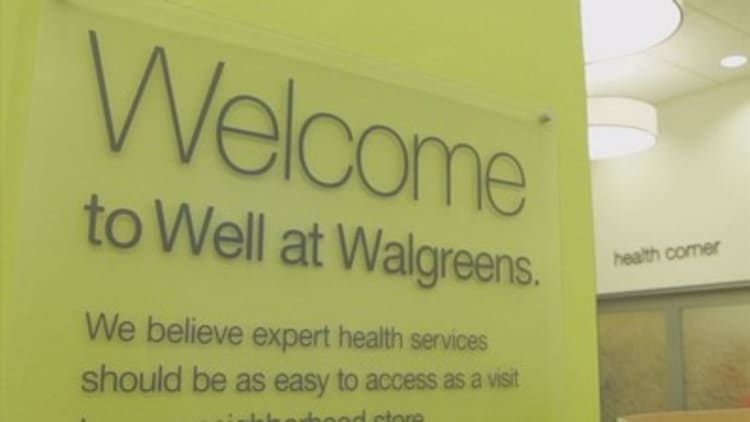
Walgreens CEO Stefano Pessina said Thursday abandoning the $9.4 billion deal to acquire rival Rite Aid and instead buying half its stores will still allow the firm to achieve its expansion goals.
The new deal will also put it in a strong position to compete if companies such as Amazon get into the pharmacy business, he said.
"When we first began discussions with Rite Aid, it was with the vision of increasing our network and our population coverage," Pessina explained on the company's third-quarter earnings conference call with analysts.
"The stores we are proposing to purchase are more than enough to create the potential opportunity for optimization of our expanded network and … to create greater efficiency above and beyond the synergies the deal is expected to deliver," he said.
Walgreens will now pay $5.1 billion in cash for 2,186 of Rite Aid's stores, about half the chain's national footprint.
The purchase will give Walgreens a stronger presence in the Northeast, and the company expects to achieve $400 million in savings within three to four years of the deal closing, Pessina said. The acquisition also will add to earnings within the first year.
The Federal Trade Commission was expected to announce its decision on the Walgreens-Rite Aid merger within the next week. But after more than a year and a half of FTC review, the companies concluded the deal would be rejected, despite its offer to divest some 1,200 stores to Fred's in order to ease the regulator's concerns.
Some analysts questioned whether there would be antitrust issues with the new store purchase agreement, which will result in a high market concentration in some regions.
Walgreens executives said they have tried "to address all of the substantive regulatory points raised" by the FTC during the regulatory review of the original deal.
Walgreens reported profits of $1.33 per share, which was three cents better than the analysts estimated, on $30.1 billion in revenue, which also topped expectations. Results were driven by strong growth and increased market share in its pharmacy division.
Nonetheless, Pessina said it remains a "challenging market for pharmacies," with increasing margin pressure on generic drugs.
Although there have been reports that Amazon is exploring the mail-order drug business, the bar to entry is high given the regulatory issues, according to Pessina.
"It's a business or industry where the consolidation has been really quite significant and so there is not a lot of new things they could do," Pessina said. "If you analyze this coldly, you would see this is not the best opportunity for Amazon and you would see the market has changed so many times in the past, and the big players in this market have survived."
Having said that, he said he's ready to take on the online retail giant if it decides to enter his turf.
"If we were wrong, and what I believe was wrong, I believe that at the end of the day we could find our role in the new environment," he said.
Walgreens will pay Rite Aid a $325 million break-up fee for the termination of their merger. There is no break-up fee involved in the new deal to buy the 2,100 stores.
WATCH: How Amazon's Whole Foods deal will change the US grocery business



